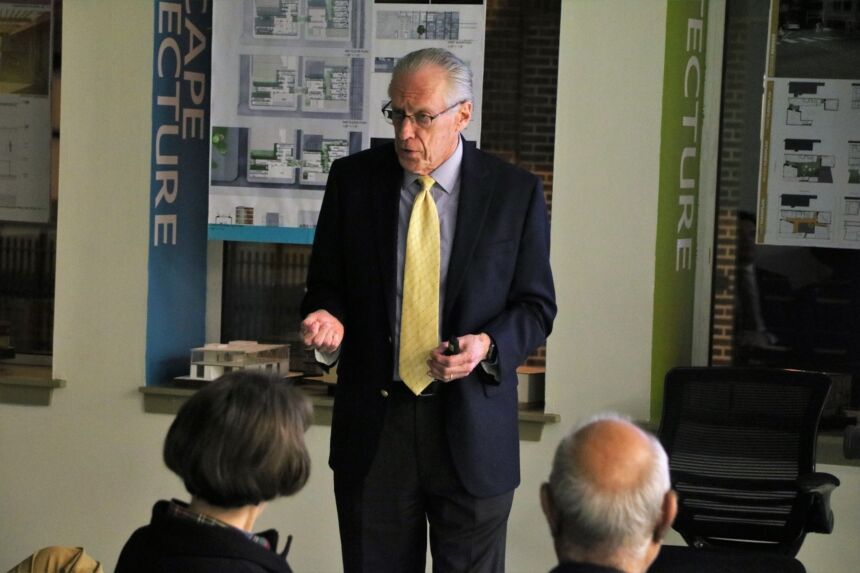November 18, 2016
Professor Jett looks to the future of American foreign policy under Trump

UNIVERSITY PARK, Pa. -- Speaking in Philadelphia on Nov. 16, Penn State School of International Affairs professor and former U.S. Ambassador Dennis Jett attempted to answer the question that everyone has been asking since the election: What happens now, specifically for American foreign policy?
Jett explained that he had anticipated, like many, that Hillary Clinton would win the presidency and would essentially continue Barack Obama’s foreign policy legacy. Instead, Donald Trump pulled out an unexpected upset victory over Clinton, leading to increased speculation about his potential plans for his new administration.
“The short answer is, who knows what Mr. Trump is going do?” Jett said, speaking at the Penn State Center Engaging Philadelphia. “And the reason for that is he is the first major party candidate in the history of the United States that has zero experience in government and zero experience in the military.”
Another factor that Jett said makes it difficult to guess at Trump’s ultimate foreign policy goals is the general unpredictability that characterized his campaign, with specific policy positions often shifting and changing.
But despite these shifting specifics, Jett identified a tendency toward “neo-isolationism that would reduce America’s role in the world” as “a reaction to globalization” as a key theme in Trump’s comments on foreign policy over the course of his campaign. Jett also noted that diminishing traditional security alliances, opposition to international trade deals, disbelief in climate change, his apparent encouragement of nuclear proliferation, and his vocal opposition to illegal immigration and plans for a wall along the Mexican border are all key factors of his campaign that could shape his administration’s approach to foreign policy.
“Another big indication of what a president is going to do is who he hires,” Jett said. “There’s a saying that ‘personnel is policy,’ because those people are in charge of formulating and implementing that policy.”
Although much of Trump’s personnel appointments remain to be seen, Jett briefly discussed Trump’s two cabinet appointments that have been widely reported: Breitbart News CEO Steve Bannon as chief strategist to the president and Republican National Committee Chairman Reince Priebus as chief of staff.
For Jett, these two key appointments create an interesting dichotomy. On one hand, Bannon describes himself as anti-establishment, disregards traditional political norms, and is often criticized for promoting white nationalist and white supremacist ideologies. On the other hand, Priebus is a longtime and influential member of the national Republican establishment who has led the GOP’s national leadership and fundraising organization since 2011.
“So you’ve got Bannon the bomb thrower and Priebus the mediator,” Jett said. “With the only two people who have been named so far, you have an immediate potential conflict … all these things matter, because how the president gets his information and makes his decisions impact the policy that gets made.”
Taken together, Jett said all these factors only further obscure how the Trump administration might respond to international issues such as the Syrian civil war and refugee crises, the fight against the Islamic State group, the long-term impacts of climate change, the apparent deterioration of the European Union, North Korea’s advancement of its nuclear capabilities, or any other number of foreign policy decisions that will have to be made.
“Unpredictability is not a plan, and our enemies and allies will see this country as unstable and unreliable,” Jett said. “Or, on the other hand, you can take the more optimistic point of view and say it’s all about the art of the deal; he’s the ultimate negotiator, and it’s all going to work out fine.”
